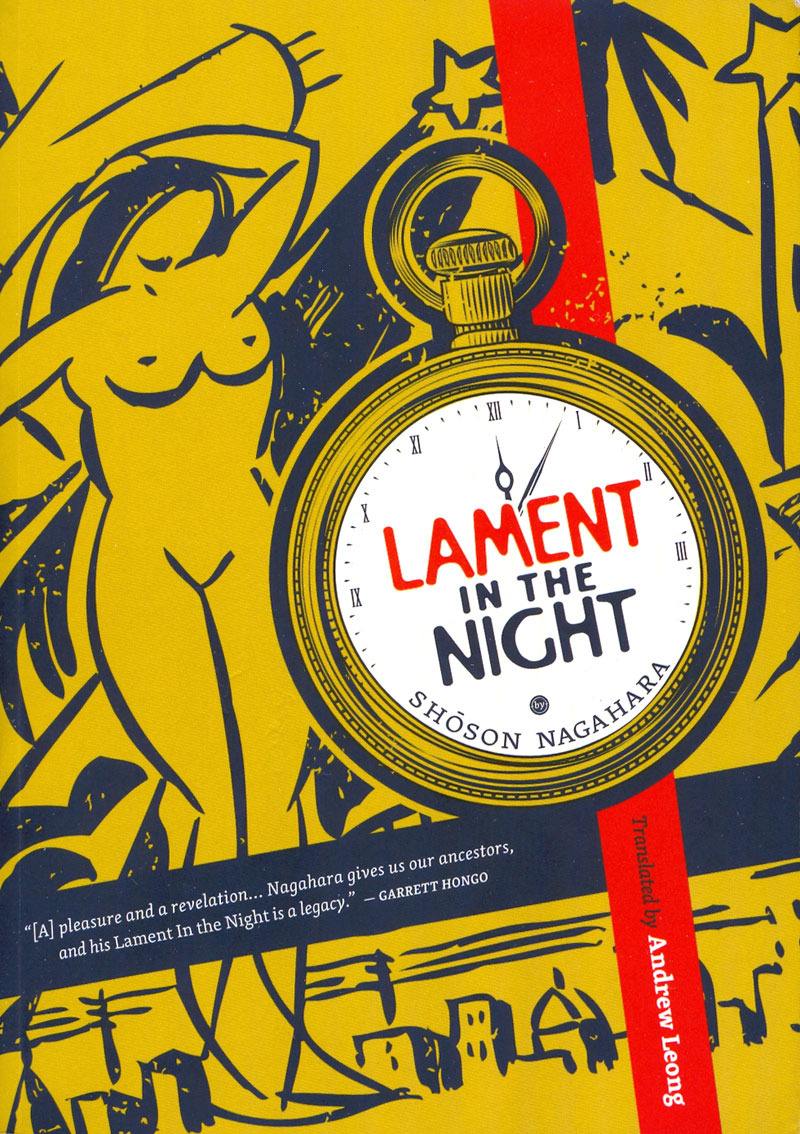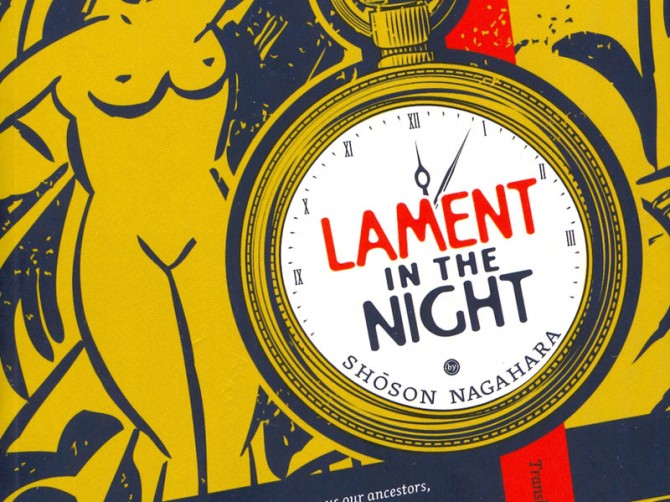Some 87 years after Shōson Nagahara’s gritty stories of survival were published in Los Angeles’ Little Tokyo for a Japanese immigrant readership, Kaya Press brings you the first-ever English translation of these forgotten novellas: Lament in the Night, translated by Andrew Leong.
Along with Nagahara’s writing, the book features dozens of archival photographs documenting Little Tokyo of the 1920s; an introduction by Los Angeles Times Book Critic David Ulin placing Nagahara’s work in the context of Los Angeles’ literary history; an afterword by translator Andrew Leong narrating his international search for Nagahara himself; plus other historical artifacts and articles about Nagahara’s work. Lament in the Night is a bristling time capsule taking the reader back to the streets of 1920’s Little Tokyo and reminding us how little the human condition has changed.
Praise for Lament in the Night:
“Japanese American noir even before noir existed. Only Kaya Press, with fine detective work by dogged translator Andrew Leong, could have brought Shōson Nagahara’s once-buried work to 21st century readers.”
— Naomi Hirahara, Edgar Award-winning author of the Mas Arai mystery series
“Lament in the Night is a heartrending gift from the past… Little Tokyo in the 1920s—its bars, gambling, and social exchanges in an era of Prohibition—comes vividly to life in these stories, revealing the real and psychic underbelly of daily lives that have been erased and forgotten. Andrew Leong’s patient and careful translation makes a lost world known to us again.”
— Karen Tei Yamashita, author of I-Hotel
“Nagahara portrays tragedies of the ordinary—new Japanese immigrants to early 20th century Los Angeles scuffling for day jobs that pay pennies, mooching restaurant meals, exchanging frail kindnesses with others and enduring the humiliations of poverty. Nagahara’s prose is full of lyric reward as he chronicles the piteous lives of his protagonists, their homesickness for Japan and affections for each other. What emerges are revelations—that, despite oppressive lives and psychological dejection, the values that they cling to are the traditional ones of loyalty and sacrifice—giri in Japanese—even as they contend with woefully fluid, diasporic circumstances. Nagahara gives us our ancestors, and his Lament is a legacy.”
— Garret Hongo, author of Coral Road
“With his skillful translation of Shōson Nagahara’s novellas, Leong gives us a rare glimpse into the literary world of early twentieth century Japanese immigrants. Historically informed and elegantly crafted, his afterword is an excellent introduction to the lives of ordinary Issei women and men in preexclusion Japanese America, an aspect of the Asian American experience that has remained a conspicuous void for some time.”
— Eiichiro Azuma, author of Between Two Empires: Race, History, and Transnationalism in Japanese America
“Collected together, [Nagahra’s novellas] give an astonishing glimpse of the precarious uncertainty facing those who planned to make it rich in California only to end up stranded there, penniless and desperate. Think of this as the Asian version of The Grapes of Wrath. In miniature. And reverse. Rather than heading west from the Dust Bowl, [Nagahara’s] characters come east across the Pacific with dreams of piling up a fortune for themselves in this country.”
— Trina Carter, ForeWord Reviews



Leave a Comment
We'd love to know what you think.